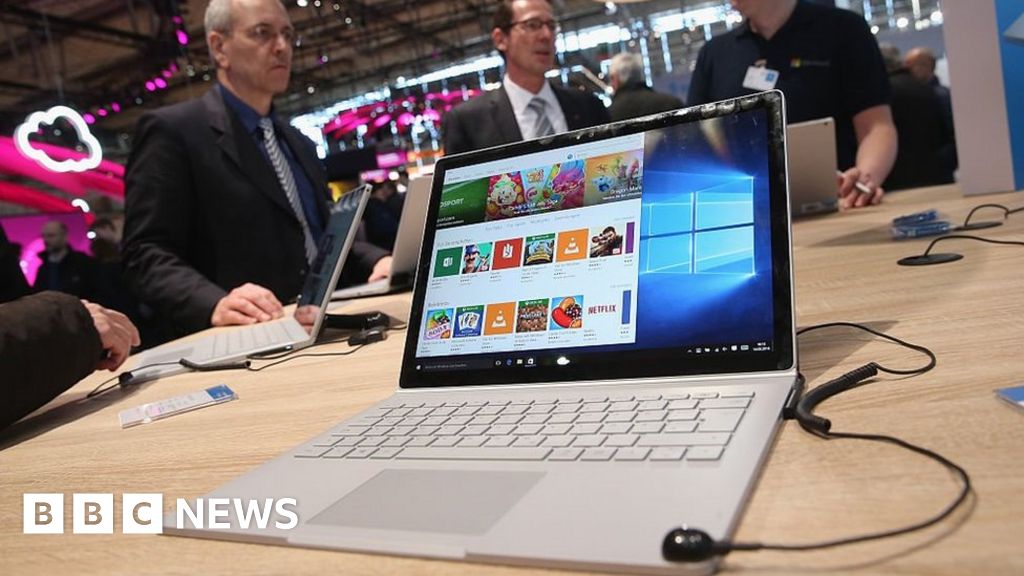The Day The E-books Stopped Working

 Image copyright
Microsoft
Image copyright
Microsoft
Consumers who bought ebooks via Microsoft's online store are losing access to their libraries.
The service, which launched in 2017, relied on the use of a web browser rather than a dedicated app and failed to build a significant audience.
Titles purchased or offered for free will no longer be available.
Out-of-pocket users are, however, being offered refunds including a $25 (£20) credit if they made highlights or notes, which will also be lost.
Microsoft first warned customers of its move in April after giving up on its ambition of making its Surface computers a popular choice for reading digital novels and textbooks.
This marks the third time the company has pulled out of the market.
Although Amazon now dominates the industry with its Kindle platform, Microsoft actually pre-dated its rival by about seven years.
The MSReader format launched in 2000 as part of an alliance with the retailer Barnes and Noble. But along with rival efforts by Palm and the French firm Mobipocket, there was little interest.
It then tried to get back into the market again in 2012 as part of a second tie-up with B&N. However, that too struggled and the partnership came to an end in 2014.
Although many readers will not have even realised Microsoft had made a third run at the industry, experts say the cut-off serves as a reminder that you do not actually own a copy of most digital purchases outright but rather have purchased a licence that can expire.
"The fact is that you don't own e-books when you buy them with DRM [digital rights management] from Amazon or anywhere else," commented Jim Killock, executive director of the Open Rights Group.
"Technical controls through DRM are said to reduce unauthorised copying, but what they are really for is putting Amazon or Microsoft in charge of the e-book ecosystem."
An organisation called Defective by Design, however, maintains a list of ways to buy or otherwise legally download content that is not bound by such restrictions.
From Chip War To Cloud War: The Next Frontier In Global Tech Competition
The global chip war, characterized by intense competition among nations and corporations for supremacy in semiconductor ... Read more
The High Stakes Of Tech Regulation: Security Risks And Market Dynamics
The influence of tech giants in the global economy continues to grow, raising crucial questions about how to balance sec... Read more
The Tyranny Of Instagram Interiors: Why It's Time To Break Free From Algorithm-Driven Aesthetics
Instagram has become a dominant force in shaping interior design trends, offering a seemingly endless stream of inspirat... Read more
The Data Crunch In AI: Strategies For Sustainability
Exploring solutions to the imminent exhaustion of internet data for AI training.As the artificial intelligence (AI) indu... Read more
Google Abandons Four-Year Effort To Remove Cookies From Chrome Browser
After four years of dedicated effort, Google has decided to abandon its plan to remove third-party cookies from its Chro... Read more
LinkedIn Embraces AI And Gamification To Drive User Engagement And Revenue
In an effort to tackle slowing revenue growth and enhance user engagement, LinkedIn is turning to artificial intelligenc... Read more

